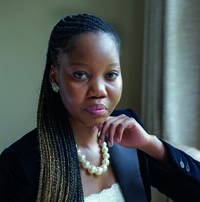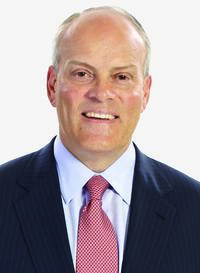Boris Chan’s father used to run a record shop in Hong Kong when Boris was a teenager. It is because of the shop, he thinks, that he became interested in music. He even formed a band with colleagues where he plays the guitar. It is also because of the shop, he says, that once he got into banking, he chose to work with small businesses.
“Some view banks as only wanting to make money — that’s a definition I don’t like,” says Mr Chan, who oversees DBS Bank’s small and medium-sized businesses in the Greater Bay Area that includes Hong Kong, Macau and nine other cities in southern China. “Banks have a purpose and I want to make an impact.”
He is not alone in thinking that banks have, or should have, a purpose greater than delivering returns to shareholders. How to fulfil that aspiration, however, remains an elusive task.
Whose interests?
While bank chief executives are happy to issue statements espousing the view that their organisations have a responsibility towards communities, customers and employees, from a fiduciary point of view, their priorities may remain skewed towards shareholders for a while longer. For instance, following a shareholder proposal, JPMorgan’s board has decided not to convert the bank into a public benefit corporation, a specific type of for-profit legal entity that must include specific public benefits in its statement of purpose. In the US, this set-up is authorised in 35 states, as well as the District of Columbia. It differs from a B Corp, which is a certification that a company meets high environmental and social performance standards.
Ultimately, JPMorgan decided that “the board’s fiduciary duties require it to act in a manner that furthers the interests of the stockholders”. Reuters reported the disappointment of one activist investor who supported the change; JPMorgan declined to comment then, and did not respond to a further request by The Banker now.
It’s a virtuous cycle… if you stand for the right things, you will attract employees that want to do the right thing by customers
Bankers are coming under pressures that often appear to compete. On the one hand, there are calls to be closer to local communities, to understand better their customers’ unique business models and growth potential. On the other hand, those community customers tend to be small, and small customers are seen as riskier and less profitable.
Local banks are a solution, but they are not as cost efficient as their larger national or international peers, nor do they have the wider reach that some customers need. Nimble digital banks can bypass some of those issues but, by definition, they are dedicated to filling the gaps left by the traditional heavyweight players and therefore are relegated to playing a complementary role.
Lenders face questions over their management of environmental as well as social risks; climate change and the break-up of social cohesion are the risks the financial sector is least prepared for, according to a 2020 international survey of the European Risk Management Council. In a vicious cycle, social unrest is arguably fuelled by financial exclusion too.
Imbalance in banking
In the US, between 2010 and 2018, branch closures disproportionately affected poorer neighbourhoods and neighbourhoods that were majority black or Hispanic, according to a study by S&P Global Market Intelligence. The pandemic has exposed these tensions further. According to a Federal Reserve study, less than a fifth of black entrepreneurs who qualified for the US government’s small business Covid-19 relief programme, the Paycheque Protection Programme, succeeded in securing loans. But positive social and environmental impact is still considered by many to be a trade-off against lower profitability.
Things are changing, but a faster pace and better coordinated efforts would help.
Valerie Smith, Citi’s chief sustainability officer, notes that since the creation of the Equator Principles in 2003, the concept of sustainability has gained relevance, and that from about two years ago, momentum has built up. Before then, it often felt like pushing a rock up a hill, she says, adding, “Now there is so much energy, it is important to prioritise goals, so that we all move in the same direction.”
Zoe Knight, the global head of HSBC’s centre of sustainable finance (which the bank considers an internal think tank), says that the biggest work now is about education, both within her organisation and with its clients. “The most critical part of solving climate [change] is transparency, [knowing] that what capital is being deployed, it really is climate friendly,” she says. Banks can help clients to be more transparent.
Traditionally, European banks tend to be more attuned to environmental and social considerations than their US counterparts. They can rely on the common definitions of the EU’s green taxonomy, and on the non-financial disclosure requirements, that are set to improve transparency as well as understanding of these matters.
Move to sustainability
Europe is also by far the largest issuer of sustainable bonds: $285.8bn last year compared to the $140bn raised by US issuers, according to data by Refinitiv. Globally, BNP Paribas and Crédit Agricole were the largest underwriters after JPMorgan. BNP Paribas was also the largest lender of sustainable syndicate loans, followed by Mitsubishi UFJ Financial Group (MUFG) and Sumitomo Mitsui Financial Group. Other banks, such as ING, Société Générale, Intesa Sanpaolo and Santander, are involved in sustainable finance, as well as wider initiatives related to climate change and the circular economy.
Increasingly, they are not alone, as international heavyweights apply their investment banking divisions — and clout — to addressing these issues. There has been a fair amount of new instruments developed to tackle sustainability: from the first bond linked to the UN’s Sustainable Development Goals, issued by Italian energy company Enel and structured by Société Générale with seven other bookrunners at the end of 2019, to a €750m similar type of instrument issued by UK retailer Tesco, with the advice of BNP Paribas, Citi, MUFG and RBC Capital Markets in January 2021.
Still, numbers highlight both the rise in such deals, and the ongoing tensions around banking and sustainability. Sustainable finance portfolios are rising steeply and reached a record last year — but they still remain a small fraction of the total. Sustainable bonds comprised less than 2% of global high yield debt issuances in 2020; syndicated loans that related to environmental, social and governance (ESG) principles were just over a fifth of the total in 2020. However, JPMorgan, the largest sustainable bond underwriter, is also the largest financier of highly polluting sectors, where it has ramped up its exposure since the signing of the Paris Agreement, according to environmental group Rainforest Action Network.
On an individual level, some bankers are increasingly involved to address sustainability issues for the whole market. Bill Winters, chief executive of Standard Chartered, also chairs the newly launched Task Force on Scaling Voluntary Carbon Markets, created under the initiative of Mark Carney, the UN special envoy for climate action and finance and former governor of the Bank of England. Mr Winters believes in a market solution to climate change through a larger and more active carbon credit market.
And on an organisational level, banks are joining cross-sector, innovative initiatives. Most recently, Goldman Sachs became the first bank to join a platform that aims to make information about companies’ environmental impact freely accessible to all: Open Source Climate. It was launched in September 2020 by the Linux Foundation, Allianz, Microsoft, Amazon, Federated Hermes and Standard & Poor’s, and has the support of the World Wide Fund for Nature, not-for-profit Ceres and the Sustainability Accounting Standards Board.
Crucially, banks are also winning over — or attracting back — sustainability experts. For example, Keith Tuffley has recently joined Citi as global co-head of the sustainability and corporate transitions division, which engages with corporate clients about ESG factors. Mr Tuffley quit banking in 2008, after leading Goldman Sachs’s industrials sector group in Europe, and serving as head of investment banking for the bank’s operations in Australia and New Zealand.
Up to 18 months ago, there was little evidence strong ESG credentials influenced financial performance. Now there is overwhelming evidence that this is the case
Since then, he has worked on environmental ventures, including as chief executive of The B Team, a not-for-profit created by Virgin Group’s Richard Branson and Harley Davidson’s Jochen Zeitz to instil environmental and social purpose in business. In that role, recalls Mr Tuffley, “the sector we found harder to bring on board was the financial sector — that’s changing very quickly now”.
He adds: “Up to 18 months ago, there was little evidence that strong ESG credentials influenced financial or share price performance. I believed it [did], but there was very little objective data to prove it. Now, there is overwhelming evidence that this is the case.”
Shared values
In Hong Kong, Mr Chan believes banks can do a better job in the community simply by following shared values, irrespective of ESG data or the organisation’s legal status. Taking the decision to support a client through tough times is “cultural”, he says. “It depends on the tone from the top, [whether] banks chose to be committed to the community.”
Anne Boden, founder and chief executive of Starling Bank in the UK, agrees. “It’s a virtuous cycle, really,” she says. “If you stand for the right things, you will attract employees that want to do the right thing by customers and by each other.”
She says that, after more than three decades in the profession, “I came to the conclusion that I was ashamed of being a banker”. In 2014, she founded Starling, which has just turned into a profitable operation. With the digital bank, she says: “We were going to have a different relationship with customers, and be far fairer to customers.”
In the US, similar frustrations led Wendy Cai-Lee to create Piermont Bank in 2019, another digital bank that focuses on the small business segment, which traditional banks often struggle to serve. This type of approach also leads to greater financial, as well as social, inclusion. “Who are the people who will start those businesses and own and run those businesses, those multi-generation family businesses? [Often they are] immigrant minorities and women — and they tend to have the hardest time in getting bank finance,” says Ms Cai-Lee. New systems, “a clean slate”, she says, do help address existing problems without solutions on banks’ legacy IT systems.
Small businesses and those with specific needs are often shunned in other markets too. In Italy, Corrado Passera, the former economic development minister and former chief executive of Intesa Sanpaolo, saw a gap that could be filled thanks to a better use of technology. In 2018, he launched Illimity, a digital bank that works with small and medium-sized companies that find themselves in specific situations that the bank can help through growth financing, restructuring or distressed credit. Illimity has secured a 5% return on equity for 2020, says Mr Passera. Using technology to serve those clients is not just a new way of turning a profit, he adds. Serving the broader community “is very important on a personal level. Even at Intesa [Italy’s largest bank], I felt responsible for the growth of the whole country.”
Digital divide
From an operational point of view, the pandemic has also exposed a tech gap within organisations, says Basetsana Seroto, chief operating officer for southern and central Africa at Standard Bank. The vast majority of staff within her division did not own a laptop, so when forced to stay at home, the bank had to purchase and deliver the equipment, and ensure staff had reliable internet connections.
The situation also highlighted the need to make the current systems more flexible. “Dealing with uncertainty means that we need to have a system that can incorporate and deal with unconventional data,” says Ms Seroto, referring to the need to incorporate data about the lockdown phase of different jurisdictions and the level of liquidity stimulus of individual governments. This all speaks to the bank’s ability to be sustainable. Looking at sustainability more broadly, she says, will help reach the bank’s goal of reducing poverty across its markets.
Again, digitalisation is not only a trend that has accelerated because of the pandemic — it has also highlighted further how access to online services is a prerequisite to a more inclusive society.
Brian Porter, chief executive of Toronto-based Scotiabank, talks about how technology has helped serve customers during some of the world’s strictest of lockdowns and in countries where transactions are typically done in person, often without using banking channels. The bank has long-standing operations across Latin American. “In Peru, 50% of people don’t have a bank account, so if they [can use a banking] app on their phone, it’s much easier for them to get into the formal economy,” says Mr Porter.
On home soil, Scotiabank has traditionally been a large financier of Canada’s oil and gas industry. Along with its national peers, it has now committed to stop financing arctic oil drilling. Like many others, it has pledged to mobilise funds to reduce the impact of climate change.
Seat on the board
The message from the top, as Mr Chan says, does make a difference. But to be effective, it needs to travel through a supportive corporate structure. This structure should be centred on the role of a chief sustainability officer, say experts.
In a recent report, the Institute of International Finance and consultancy Deloitte argued the necessity for this role at board level. At the report presentation in February, Santander’s head of responsible banking, Lara de Mesa, said: “The ‘G’ [in ESG] is the enabler. We can’t do the ‘E’, we can’t do the ‘S’, without the ‘G’. We can’t help the environment or society without [choosing to do] the right thing.”
Just as banks need a chief risk officer, even if everyone within the organisation manages risk, so they need someone ultimately in charge of sustainability, argues the report.
While a few organisations already have equivalent roles, it is evident more needs to be done. Research from the NYU Stern Centre for Sustainable Business was a recent eye-opener, exposing US boards’ limited credentials when it comes to ESG. After examining the profiles of the 1188 board directors of Fortune 100 companies, it found that only 1.2% of them has experience in the energy sector; 0.5% in environmental law; 5% — the most populous group — in workplace diversity; 1.1% in economic or community development; and only 0.3% in ethics, corruption or corporate responsibility.
It is logical to expect that banks, as well as businesses, will seek out those ESG credentials — and not just at board level. Anecdotally, many bankers report that new recruits enquire about their potential employer’s sustainability policies. But Mr Chan has never received such queries, although he continues to sit on many interview committees. Nor has Paolo Romanengo, a philosophy, politics and economics student at Warwick University in the UK, ever dared to make them.
“It would never occur to me or any of my friends to ask a prospective employer about their environmental policy,” he says. While crafting applications and interviews around key words — and therefore mentioning sustainability if the company seems to highlight its policy on this area — “you know that [an investment bank would] make more money out of an oil field than it would financing the installation of solar panels on buildings’ roofs”, he says.
Clear-eyed view
Mr Romanengo says that while they might be self-serving, banks are attractive employers because they pay well. He is not alone.
Covid has shrunk the number of available graduate bank jobs, but these remain highly oversubscribed. Goldman Sachs received 43 applications for each position in its 2021 European graduate programme, and a total of 100,000 applications for about 3000 roles globally in 2020, according to Financial News. Morgan Stanley’s applicant-to-opening ratio was even higher for its summer internships in Europe, the Middle East and Africa, and HSBC received an average of 113 applications from graduates for each internship or full-time role it opened in the UK alone.
Mr Romanengo is interviewing for a summer internship at a large European bank. But, like Mr Chan, his past experience has shaped his view of finance. In his home country of Italy, he has seen the crumbling of previously successful small businesses after banks cut credit lines during the financial crisis. He helped assemble a discussion between central bankers at this year’s Warwick Economics Summit, a well-known event for students by students, and would like to improve banks’ responsibility towards society by working at a central bank. A sense of purpose inspires him, just as it does Mr Chan.
If chief executives are serious about shifting their organisations towards a more sustainable path, they may benefit by more transparency, better technology, the appointment of a chief sustainability officer, as well as having a board with greater ESG credentials. But they would also benefit from seeking out the new generation of bankers that have a constructively critical view of what it has meant, until now, to run a bank.












